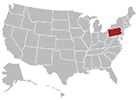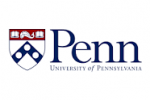
Nursing is an excellent occupation for those who want to help others lead healthy lives.
Nurses fulfill a critical healthcare role by collaborating independently with physicians to ensure patients are given the correct care.
A nurse can work in a community clinic, school, long-term care facility, hospital, or hospice.
These roles are typically accompanied by an elevated level of responsibility and high salaries with needing medical school.
Registered nurses (RNs) require state certification and a bachelor’s degree in nursing.
Licensed practical nurses (LPNs) and licensed vocational nurses (LVNs) practice with a license and associate degree in nursing.
Advanced practice registered nurses (APRNs), including nurse anesthetists and nurse practitioners, require a graduate degree to practice and earn licensure.
If you’re interested in learning more about becoming a registered nurse in Pennsylvania, keep reading!
5 Registered Nurse Schools in Pennsylvania
Pennsylvania has dozens of nursing schools within its borders; however, some of the best include:
DeSales University

Situated outside of Allentown, DeSales is another excellent nursing school offering a master’s degree.
In addition, the DeSales Division of Nursing also offers a Doctor of Nursing Practice degree for those who wish to continue their medical education while working or before entering the workforce.
The DeSales master’s in nursing degree is ranked within the top 150 in the U.S., but their doctorate is unranked.
Duquesne University

Located in Pittsburgh, Duquesne is a private school that offers a master’s program in their School of Nursing.
This education costs $1,568 per credit hour, and the program can be completed in around two years.
With 46 full-time faculty members and only 426 students, the teacher-to-student ratio is excellent and ensures every pupil has personalized attention.
University of Pennsylvania

The University of Pennsylvania is one of the top schools in the U.S. in various areas, including nursing.
Categorized in the Ivy League system, Penn offers a master’s program through the School of Nursing, which costs $47,000 per year for full-time students.
The master’s program can be completed in around two years, with lecture and clinical experience required.
University of Scranton

Located in Scranton, which is in the northeastern corner of the state, the University of Scranton also offers a master’s degree program through the Department of nursing.
Full-time students should be expected to pay $965 per credit hour, and the program can be completed in two years.
With 22 full-time faculty members and an enrollment of 99 students, the teacher-to-student ratio is one of the best in the state!
Villanova University

In addition to being a well-known basketball school, Villanova is another top-notch nursing school in the Philadelphia area.
The school offers a master’s program through the College of Nursing, costing $970 per credit hour.
This program can also be completed in around two years and requires students to get hands-on experience through clinical work and in-class lectures.
Villanova has a low enrollment of just 335 students in the entire program.
Registered Nurse Schools in Pennsylvania – Summary Table
Top 5 Schools in Pennsylvania
| School Name | Address |
|---|---|
| DeSales University | 2755 Station Ave, Center Valley, PA 18034 |
| Duquesne University | 600 Forbes Ave, Pittsburgh, PA 15282 |
| University of Pennsylvania | Philadelphia, PA 19104 |
| The University of Scranton | 800 Linden St, Scranton, PA 18510 |
| Villanova University | 800 Lancaster Ave, Villanova, PA 19085 |
Salary
The average U.S. Registered Nurse salary ranges from $59,390 to $106,520, with a median salary of $82,960.
However, salary ranges can significantly vary based on the nursing position you’re searching for.
In comparison, a nurse’s salary in Pennsylvania ranges from $63,619 to $114,104, with a median salary of $88,867.
Annual Salary Range:Average Salary of Registered Nurse (RN)s in Pennsylvania
| City Name | Salary |
|---|---|
| Philadelphia | $71,140 |
| Pittsburgh | $65,410 |
| Allentown | $66,930 |
| Erie | $61,340 |
| Upper Darby | $71,140 |
| Reading | $66,060 |
| Scranton | $61,300 |
| Bethlehem | $66,930 |
| Lower Merion | $71,140 |
| Bensalem | $71,720 |
Regional Salary in Pennsylvania
| Region | Employed | Avg. Annual Salary | Avg. Hourly Pay | Top 10% Annual Salary | Bottom 10% Annual Salary |
|---|---|---|---|---|---|
| Allentown-Bethlehem-Easton, PA-NJ | 9,370 | $88,660 | $42.63 | $102,440 | $67,270 |
| Altoona, PA | 1,640 | $79,140 | $38.05 | $98,840 | $63,240 |
| Bloomsburg-Berwick, PA | 2,600 | $78,660 | $37.82 | $103,820 | $62,060 |
| Chambersburg-Waynesboro, PA | 1,100 | $87,440 | $42.04 | $104,770 | $64,220 |
| East Stroudsburg, PA | 1,090 | $82,440 | $39.63 | $100,670 | $61,920 |
| Erie, PA | 2,780 | $79,070 | $38.01 | $98,760 | $60,600 |
| Gettysburg, PA | 500 | $80,390 | $38.65 | $96,160 | $64,800 |
| Harrisburg-Carlisle, PA | 8,640 | $86,480 | $41.58 | $101,930 | $66,740 |
| Johnstown, PA | 1,220 | $75,360 | $36.23 | $85,280 | $60,580 |
| Lancaster, PA | 5,050 | $83,770 | $40.27 | $100,230 | $63,750 |
| Lebanon, PA | 1,220 | $89,480 | $43.02 | $109,320 | $65,020 |
| Philadelphia-Camden-Wilmington, PA-NJ-DE-MD | 72,060 | $94,850 | $45.6 | $119,440 | $72,890 |
| Pittsburgh, PA | 27,470 | $82,220 | $39.53 | $103,380 | $64,790 |
| Reading, PA | 3,390 | $91,090 | $43.79 | $120,430 | $65,850 |
| Scranton--Wilkes-Barre--Hazleton, PA | 5,500 | $79,680 | $38.31 | $100,400 | $59,380 |
| State College, PA | 1,110 | $81,170 | $39.03 | $99,530 | $52,960 |
| Williamsport, PA | 1,260 | $86,520 | $41.59 | $102,470 | $64,210 |
| York-Hanover, PA | 3,610 | $85,250 | $40.99 | $104,900 | $65,080 |
* Employment conditions in your area may vary.
Frequently Asked Questions
What is the process for becoming a nurse in Pennsylvania?
Aspiring nurses must earn an associate’s or bachelor’s degree in nursing.
If you wish to earn a master’s degree, then you must first complete the bachelor’s degree.
Once obtained, graduates must acquire a nursing license by submitting the fee and completing three hours of the child abuse recognition program from an approved provider.
Other requirements for becoming a nurse include passing a background check and then the NCLEX-RN exam.
Once all these activities are complete, nurses are authorized to work in Pennsylvania.
However, it’s important to note that to continue working within the state, you must maintain and renew your certification every two years and complete 30 hours of approved continuing education.
What are the four nursing fields?
All health categories fall into these higher-level nursing fields, including adult nursing, children’s nursing, mental health nursing, and learning disabilities nursing.
While there are countless subcategories and specialties within the field, these are the main four.
Which nurses are the happiest?
Moving into an occupational health nurse field will provide the most happiness while on the job with a low-stress level.
This is because these nurses work with others interested in maintaining their health and appreciate the nurse’s experience and input.
In most cases, being happy in your job is much more important than the salary, so being an occupational health nurse has many benefits.
What type of nurse is in highest demand?
The highest-demand nursing specialties include clinical, dialysis, neonatal nursing, nurse practitioner, and nurse advocate.
After completing your degree, you can specialize in these areas by pursuing advanced education classes where you will earn a certificate.
This will allow you to enter into these high-demand fields.
Can a nurse make six figures?
Yes, it’s possible to make six figures per year as a nurse, but that depends on your specialty, education level, experience, and location.
Nurses commonly make more money in the northeast and on the west coast of the U.S.
However, the cost of living is also higher in these locations, so the salary offsets the higher cost of housing, groceries, transit, etc.




